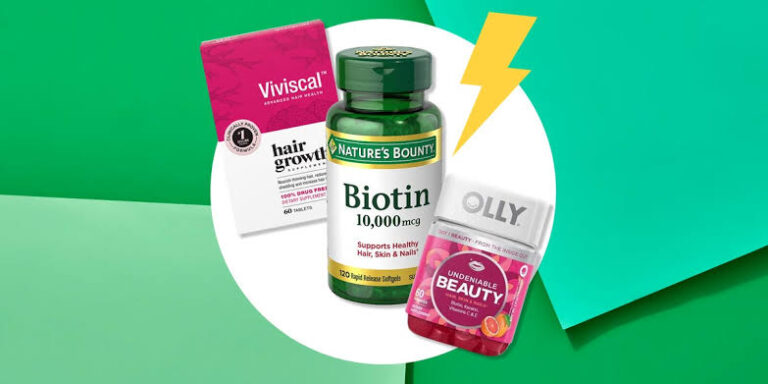Hair loss is a common concern for many older women, often linked to hormonal changes, aging, and nutritional deficiencies. While the aging process is inevitable, it doesn’t mean you can’t take steps to promote stronger, healthier hair. Incorporating specific vitamins into your routine can make a significant difference. Here, we’ll explore the best vitamins for combating hair loss and provide lifestyle tips for managing thinning hair effectively.
Vital Vitamins for Hair Health
Certain vitamins and nutrients are essential for maintaining hair strength and encouraging growth. If you’re experiencing hair loss, these key vitamins can help restore vitality to your locks:
1. Biotin (Vitamin B7)
Biotin is one of the most well-known hair vitamins and for a good reason. It plays a crucial role in producing keratin, the protein that forms the structure of your hair. Regular intake of biotin can improve the thickness, strength, and overall health of your hair, making it an essential part of any hair care regimen.
2. Vitamin D
A deficiency in vitamin D can contribute to hair thinning or slow growth. Vitamin D is crucial for stimulating hair follicles and maintaining a healthy scalp. Spending time in the sun and consuming fortified foods or supplements can help keep your levels in check.
3. Iron
Iron helps red blood cells deliver oxygen to your hair follicles. Without sufficient iron, hair growth slows down, and strands can become brittle and prone to falling out. Adding iron-rich foods like spinach, lentils, and lean meats to your diet can support hair health.
4. Vitamin C
Vitamin C enhances iron absorption and boosts collagen production, which strengthens hair. Foods rich in vitamin C, such as citrus fruits, berries, and broccoli, are excellent for supporting scalp health and improving hair texture.
5. Omega-3 Fatty Acids
These essential fatty acids nourish the scalp, reduce inflammation, and promote hydration, which is vital for preventing hair loss and keeping strands shiny.
Pairing these vitamins with products like a hair growth serum can amplify their effects, giving your hair the boost it needs to grow thicker and stronger.
Lifestyle Tips for Managing Hair Loss
While vitamins are crucial, managing hair loss involves a holistic approach. Here are some additional lifestyle tips to protect your hair:
1. Maintain a Balanced Diet
A well-rounded diet rich in vitamins and minerals supports overall hair health. Incorporating nutrient-dense foods also benefits your skin. Following a rosacea diet, for example, can reduce inflammation, promoting a healthier scalp and skin.
2. Be Gentle with Your Hair
Avoid excessive heat styling, harsh chemical treatments, and tight hairstyles that can weaken hair and lead to breakage. Use gentle, sulfate-free shampoos and conditioners to protect your strands.
3. Stay Hydrated
Keeping your body hydrated is essential for healthy hair growth. Dehydration can lead to a dry scalp, which hinders hair growth.
4. Regular Scalp Massages
Massaging your scalp increases blood circulation, promoting nutrient delivery to your hair follicles. Pair this with a hair growth serum to maximize results.
5. Reduce Stress
Chronic stress can lead to hormonal imbalances that cause hair thinning. Incorporating stress-relief practices like yoga or meditation can support hair health.
Final Thoughts
For older women experiencing hair loss, incorporating targeted hair vitamins and lifestyle changes can dramatically improve hair health. Pair these efforts with the best topical treatments, like a hair growth serum, to create a comprehensive approach to combating thinning hair. By nourishing your hair from the inside out and making small adjustments to your routine, you can enjoy healthier, more resilient locks.


